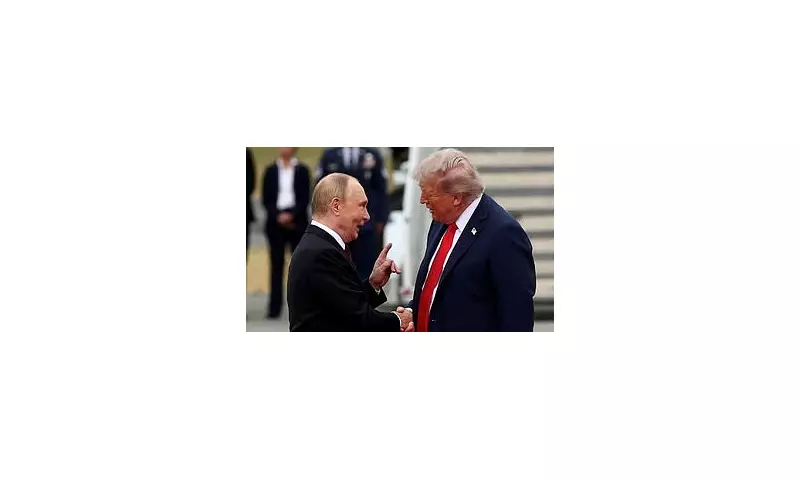
In a stunning diplomatic development that has sent shockwaves through international circles, former US President Donald Trump has publicly thanked Russian leader Vladimir Putin for suggesting he deserves a Nobel Peace Prize.
The controversial exchange emerged during Trump's exclusive interview with British broadcaster Nigel Farage, where the former president described Putin's endorsement as "a good thing" while stopping short of confirming whether he would formally accept such an honour.
The Putin Proposition
According to Trump's account, the Russian president made the unexpected suggestion during their previous interactions, though specific details about when and where this conversation occurred remain unclear. "He said I should get a Nobel Prize for a lot of things," Trump revealed, characterizing the Russian leader's comments as complimentary rather than strategic.
This revelation comes at a particularly sensitive time in international relations, with Western nations maintaining cautious stances toward Moscow amid ongoing geopolitical tensions.
Diplomatic Fallout and Reactions
Political analysts and foreign policy experts have expressed deep concern about the implications of such public camaraderie between the former American leader and the Russian president. Many worry this could complicate current diplomatic efforts and signal potential shifts in future US foreign policy should Trump return to power.
The timing is especially notable given Trump's current political position as the presumptive Republican nominee for the upcoming presidential election. Critics argue that accepting praise from Putin undermines Western unity, while supporters see it as evidence of Trump's unique ability to maintain relationships with world leaders regardless of political differences.
Historical Context and Precedents
This isn't the first time Trump's name has been mentioned in Nobel Prize discussions. During his presidency, he was nominated for his role in brokering the Abraham Accords, which normalized relations between Israel and several Arab nations. However, receiving endorsement from a leader currently at odds with much of the Western alliance presents an entirely different political dynamic.
The Nobel Peace Prize has historically recognized figures who promote international diplomacy and conflict resolution, though recent years have seen increasing politicization of the award.
As global leaders assess the implications of this unexpected diplomatic exchange, the incident highlights the continuing complexity of US-Russia relations and raises questions about how such relationships might evolve in future political landscapes.






